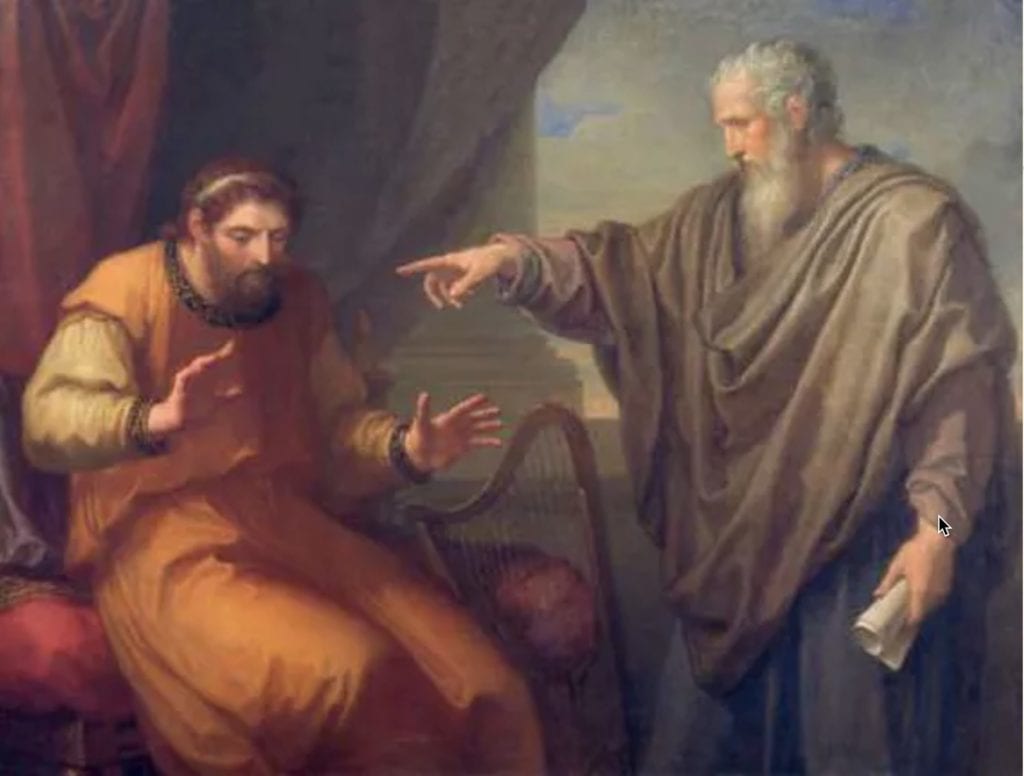An Old Testament KnoWhy relating to the reading assignment for Gospel Doctrine Lesson 24: “Create in Me a Clean Heart” (2 Samuel 11-12; Psalm 51) (JBOTL24B)
This article continues a detailed commentary begun in article JBOTL24A on 2 Samuel 11-12, the story of the fall of David. Robert Alter summarizes this tragic story as follows:
The Book of Samuel is one of those rare masterworks that … evinces an unblinking and abidingly instructive knowingness about man as a political animal in all his contradictions and venality and in all his susceptibility to the brutalization and the seductions of exercising power. And yet, David is more than a probing representation of the ambiguities of political power. He is also an affecting and troubling image of human destiny as husband and father and as a man moving from youth to prime to the decrepitude of old age. The great pivotal moment of the whole story in this regard is when he turns to his perplexed courtiers, after putting aside the trappings of mourning he had assumed for his ailing infant son, now dead, and says, ‘I am going to him. He will not come back to me.’ These … words … have no conceivable political motive[; they] give us a glimpse into his inwardness, revealing his sense of naked vulnerability to the inexorable mortality that is the fate of all humankind. For the rest of the story, we see David’s weakness and his bonds of intimate attachment in fluctuating conflict with the imperatives of power that drive him as a king surrounded by potential enemies and betrayers.
The full article may be found at the Interpreter Foundation website: KnoWhy OTL24B — Why Is the Story of David and Bathsheba Significant? (Part 2 of 2)
The post Part 2 of 2: Why Is the Story of David and Bathsheba Significant? (Gospel Doctrine Lesson 24B) appeared first on FairMormon.
Continue reading at the original source →




